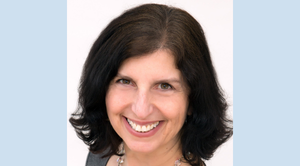PUBLISHED: 12th November 2024

by Mary-Frances Garber, MS, CGC
It has been a few months since I had the good fortune of attending a webinar sponsored by FORCE and the National Society of Genetic Counselors. FORCE Executive Director, Sue Friedman and Partnership Strategy Manager, Verinda Hobbs addressed the struggles breast cancer survivors and previvors face while navigating their ongoing care. As a genetic counselor whose focus is on counseling those with anxieties surrounding living with hereditary cancer susceptibility, I appreciated the summary of the 2024 FORCE needs assessment survey, which revealed some of the emotional challenges previvors experience.
Previvors are those who survive a predisposition to or increased risk of a disease such as cancer. The term was coined by FORCE and truly encapsulates the status of these individuals. To me, “pre” signifies getting a jump on survivorship. A positive-sounding word, “previvor” hopefully allows one to avoid being diagnosed with cancer. Being a previvor comes with its own set of emotional concerns. Previvors live in the cancer world—not personally diagnosed—but still deeply affected. These high-risk stakeholders grapple with a lot, even though they are not sick or battling cancer.
The burden of knowledge for some, the blessing of knowledge for others. With this comes increased screening, decisions regarding surgery, living with uncertainty and sharing the knowledge with family members, among other challenges.
The survey data shows that over one-third of respondents stated it is emotionally hard preparing for and receiving breast screening results. A majority of respondents stated it was emotionally hard preparing for (74%) and recovering from (60%) a risk-reducing mastectomy.
Living with recurrent screening either through MRI, mammograms or blood work is emotionally challenging, and the days preceding such tests can be filled with anxiety that can be intrusive to everyday life. This is an ongoing struggle that previvors need to manage.
The webinar also presented preliminary findings related to people at high risk for gynecologic cancer (unpublished). Many previvors are also faced with decisions regarding fertility preservation with the assistance of reproductive specialists; one-third of respondents felt this was emotionally hard as well.
When one thinks of previvors, we immediately think of screening, risk-reducing surgeries and follow-up appointments. What about mental health? As a genetic counselor focusing on the emotional concerns my patients face secondary to genetic issues, I was happy to see that FORCE shared this data and recognizes the emotional challenges that previvors experience as an issue of paramount importance for genetic counselors.
As I sat down to write this blog, a new patient emailed me. Coincidentally, she is BRCA2 positive and wanted to meet with me in anticipation of her upcoming surgeries. Her primary care provider listened to her and sent her to me for support. Her provider is exceptional, recognizing that her mental health is as important as her physical well-being.
Some previvors have the added challenge of caring for a family member with cancer while simultaneously learning that they, too are at risk. This weighs heavily on the caregiver, who now becomes a patient, working to prevent their own illness. Here, emotional support is of paramount importance. The FORCE study demonstrated a gap in meeting the need for emotional support for caregivers from hereditary cancer families. More studies are needed to address the emotional needs of high-risk stakeholders. However, I know from experience that many need someone to support them and listen to their concerns regarding screening burnout, sharing their risk with other relatives, and managing their guilt, uncertainty and even grief. FORCE peer support programs do a great job of meeting these needs, but sometimes people need additional expert guidance and validation even after receiving their genetic results.
My hope is that providers such as genetic counselors, nurses and physicians recognize the additional risks and emotional challenges faced by previvors and survivors and refer them to counselors who can provide ongoing support, helping previvors and survivors of the hereditary cancer journey feel heard, understood and less alone.
Mary-Frances Garber is a board-certified, licensed genetic counselor with a private practice, Listening, Reflecting, Healing, that provides supportive genetic counseling. She believes that individuals and families need a place to process the emotions associated with their genetic issues, including hereditary cancer. She has over three decades of experience educating patients about their genetic risk while tending to their emotional well-being. For more information: www.listeningreflectinghealing.com. She can be reached at [email protected].
POSTED IN: Risk Management , Emotional Health And Well Being , Screening And Prevention , Previvor
TAGS: Genetic Counseling , Previvor , Screening And Prevention , Mental Health